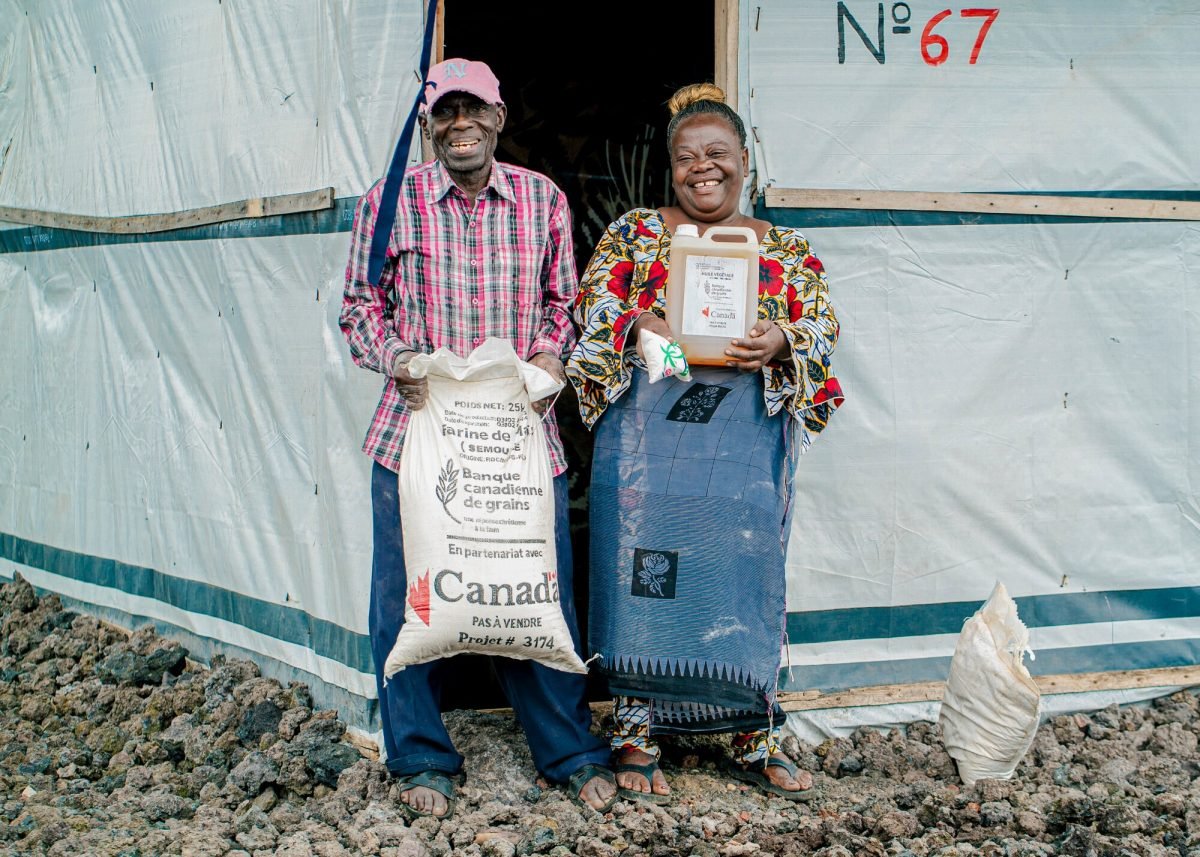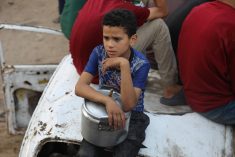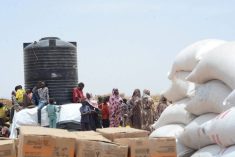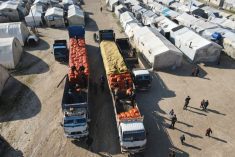Cuts to international aid in the 2025 federal budget could harm the Canadian Foodgrains Bank’s ability to provide food aid.
“We’re concerned that the budget seems to signal declining importance, I guess, for aid,” said Foodgrains Bank public policy director Paul Hagerman.
The budget, released Nov. 4, announced $2.7 billion in cuts to Canada’s international assistance over four years. The Canadian Foodgrains Bank, an organization founded in the 1970s by Canadian farmers aiming to relieve world hunger, is among the charities that could be affected by this reduction.
Read Also

Pea, lentil outlooks have some positive signals – Penner
As pulse growers consider what to plant this spring, Chuck Penner of Leftfield Commodities Research said there is some optimism in the Canadian pulse market. Penner gave a presentation at the Saskatchewan Pulse Growers meeting in Swift Current on Feb. 4.
Hagerman said the cuts are unlikely to have major impacts on the aid organization in the short-term but could compound over the years.
“The only time international development and aid is mentioned (in the 2025 budget) is ‘we’re going to cut here, we’re going to cut there, we’re going to cut somewhere else,” Hagerman said.
“It signals a shift away from seeing aid as a key part of Canada’s identity, and I think in the long term, that’s more worrisome.”
The Canadian Foodgrains Bank was one of a coalition of over 100 NGOs that expressed concern over the government cutting international assistance back to what it described as a baseline, pre-COVID level.
In a Nov. 4 written release, Cooperation Canada CEO Kate Higgins said the cuts would “erode Canada’s credibility with our global partners and blunt our capacity to shape outcomes that affect Canadians at home.”
Potential fundraising setback
While the Foodgrains Bank does receive funding from the Canadian government, most of its support comes from Canadian donors, including many farming communities.
“Farmers, either individually or in groups, they volunteer time, they volunteer their equipment, they put in cash, and collectively are contributing millions of dollars to our global efforts to reduce hunger, and we’re so grateful for that,” Hagerman said.
He said in meetings supporters will often refer to Foodgrains Bank as ‘we’ rather than ‘you guys’ or ‘them.’
“There’s a strong sense of ownership there. And many people have been supporters for decades. You know, the older generations of a family tend to encourage the younger ones to support.”
“We are working on reducing hunger,” he said. “I mean, it’s our business. It’s their business as well. They’re growing food, not only for families but for Canadians and for export and just recognize the life-giving nature of food production and food systems.”
While that support has been strong, budgetary cuts could weaken it. Currently, the government matches donations to the Foodgrains Bank’s food assistance projects 4:1, up to $25 million a year.
“People know ‘I’m giving money, it’s been matched by the government, so it’s going to have a bigger impact,” Hagerman said. “I think if we were not to get money from government, it would be a setback in our fundraising.”
The current grant supporting this donation-matching will last four years, but Hagerman said the end of those four years could bring a “very different fiscal environment.”
Canada’s reputation abroad
Hagerman said charities like the Foodgrains Bank have the potential to have impacts on Canadian agriculture beyond charity, as their work could help to strengthen Canada’s reputation abroad.
“If you look at some of the places where Canada was contributing aid 20-30 years ago, a lot of them are strong trading partners now,” he said. “It’s because we’ve helped to overcome poverty and build up prosperity in those countries to the point where they’re now interested in buying what we have to sell.”
“If we all live in a world where there’s constant wars, where there’s diseases moving across borders, where there’s conflict moving across borders, it’s not good for any of us. And that’s the root that we’re trying to address as a development in the humanitarian organization.”
Earlier this year, the Trump administration made sweeping cuts to the U.S. Agency for International Development (USAID), which hurt some of the Foodgrains Bank’s partner organizations. Hagerman said it was disappointing to see the Canadian government not take the opportunity to step up and offer support where the U.S. had cut it.
“If you look at Prime Minister Carney, if you look at Minister Anand, who’s Minister of Foreign Affairs, they have been very vocal in the last few months … to say, as the U.S. retreats from the world, this is a good opportunity for Canada to step in and play a bigger role in the world stage,” he said. “We were hoping that we would see that in the budget, but it doesn’t look to be the case.”















